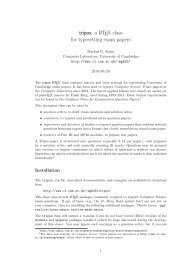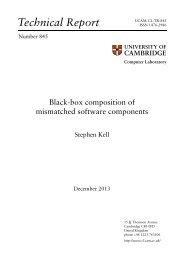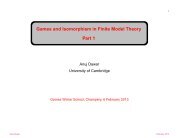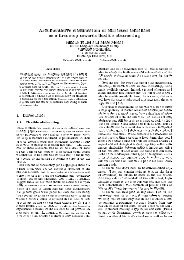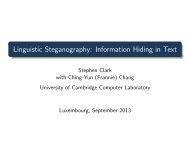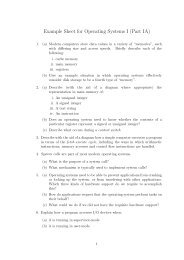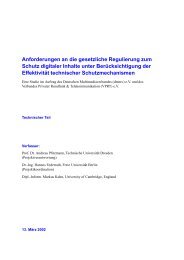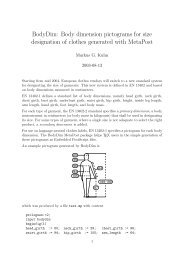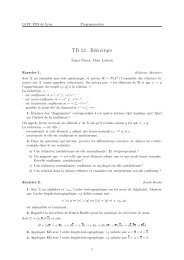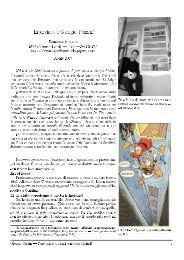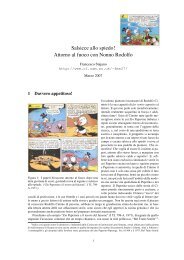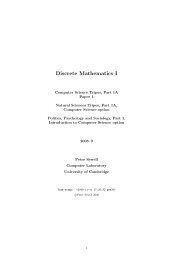Radical innovation: crossing knowledge boundaries with ...
Radical innovation: crossing knowledge boundaries with ...
Radical innovation: crossing knowledge boundaries with ...
You also want an ePaper? Increase the reach of your titles
YUMPU automatically turns print PDFs into web optimized ePapers that Google loves.
New fields of study often arise in explicit opposition to some existing academic<br />
culture. In cases where the two approaches are later reintegrated in interdisciplinary<br />
collaboration, perhaps in order to broaden the perspective of the original field, this<br />
can be uncomfortable when the underlying presumptions are exposed. However<br />
interdisciplinary educators are themselves constructing new disciplines that are likely<br />
to lead to such tensions for future generations.<br />
An alternative path is for the new methods to be absorbed into the historical narrative<br />
of an established discipline, as was the case <strong>with</strong> the 19th century origins of<br />
professional public health, whose founders (Florence Nightingale, for example), are<br />
appropriated as historical exemplars of a particular discipline, rather than as having<br />
challenged the traditions of that discipline through innovative methods from other<br />
disciplines.<br />
7.2. Intellectual property<br />
All expert witnesses in this project have been critical <strong>with</strong> regard to the way that IP<br />
contracts (both research funding agreements and subsequent patent protection and<br />
licensing) effectively ‘strangle’ interdisciplinary <strong>innovation</strong>. Both mechanisms of peer<br />
review and policy/academic conceptions of ‘industry’ impose unrealistic measures<br />
and constraints on innovative work. IP contracts prevent fluid recombination of ideas,<br />
thereby favouring existing disciplinary structures and relations. They also anticipate<br />
the kinds of value that are expected to arise from relationships, in ways that can harm<br />
the relationship. The formalisation and legalisation of relations also harms the<br />
development of trust between collaborators.<br />
However the registration of patents or other IP can be used as a surrogate of societal<br />
benefits expected from publicly funded research. This surrogate becomes especially<br />
salient in the translation of public expectation between government agencies, such<br />
that encounters between research councils and government departments place<br />
particular emphasis on IP. In the UK, the Department for Innovation Universities and<br />
Skills, and its predecessor the Department of Trade and Industry, both used patents as<br />
a measure of broader academic contribution, as did the Technology Strategy Board<br />
and the Office of Science and Technology. Even where patents are not generated in<br />
sufficiently large numbers for counting and comparison, the terms in IP exploitation<br />
contracts can act as even more remote surrogates. Our sophisticated expert witnesses<br />
recognised these tendencies, and generally deplored them, but were also able to<br />
respond to them in creative and even subversive ways.<br />
Public agencies do not have sophisticated understanding of the dynamics of<br />
commercialisation. It is therefore possible to substitute agreements <strong>with</strong> academics in<br />
corporate research labs or in shell start-ups, or in speculative VC seed investment.<br />
However, good interdisciplinary innovators, while possibly using these mechanisms,<br />
also focus on more meaningful mechanisms that are less constraining. One of those is<br />
the construction of value narratives rather than nominal pricing arising from patent<br />
Innovation and Interdisciplinarity 75



